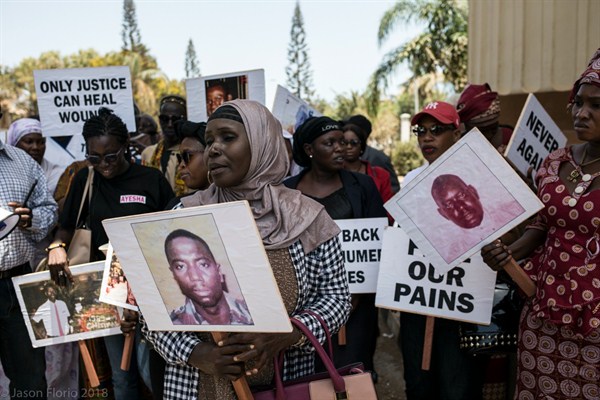Nearly two years after Gambian dictator Yahya Jammeh fled into exile, the transitional justice process is taking multiple forms. But as officials prepare for potential prosecutions and truth commission hearings, there are fears that their work could roil Gambian society, and that Jammeh could evade accountability.
BANJUL, Gambia—In July 2005, Martin Kyere, a 25-year-old shoe-seller from Kumasi, in northern Ghana, set off for what he hoped would be a better life in Europe. He took with him a small bag containing some clothes and biscuits, and $1,400 sewn into his underpants.
First he traveled to Dakar, the capital of Senegal, to find a smuggling agent to arrange the risky voyage to Spain via the Canary Islands, then the most common illegal migration route to Europe from West Africa. The plan was to travel by canoe from the Senegalese coast to a larger boat waiting for them in the Atlantic Ocean. He and around 55 other migrants—44 from Ghana and the rest from Nigeria, Senegal, Togo and Cote d’Ivoire—set off from the town of Saly at night, but they lost contact with the captain of the boat and ended up straying into neighboring Gambia.

